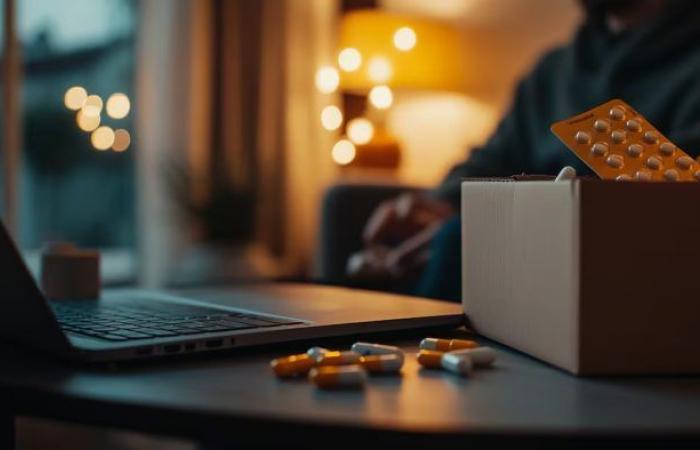The illegal sale of medicines online is becoming a major challenge for the authorities, concerned about the risks this practice poses to public health. In response to the proliferation of these unregulated platforms, the government has decided to strengthen its regulations and intensify the fight against this illegal activity which concerns more and more citizens.
Online purchases of medicines are experiencing worrying growth on a global scale, a situation which is favoring a real standoff between players in the pharmaceutical sector and public authorities.
The Minister of Health, Amine Tahraoui, returned to this issue by speaking before the House of Advisors on Tuesday, December 31. According to him, online pharmacies, whether simple websites or more sophisticated e-commerce platforms, act outside the legal standards in force. A situation which exposes Moroccans to major health risks, in particular the purchase of potentially counterfeit medicines.
“The medicines sold on these sites may not meet the quality and safety standards essential to the protection of public health. Consumers thus expose themselves to considerable dangers, whether from ineffective products or dangerous substances,” the minister said. If the exact extent of the phenomenon remains difficult to assess, the authorities are clear: the increase in this illicit trade constitutes a growing threat to the health of Moroccan citizens.
Read also: Morocco takes a step forward with its cannabis-based anti-epileptic drug
The minister also highlighted the dangers linked to counterfeit medicines, which represent a significant proportion of products sold online. According to some studies, around 10% of medicines marketed in developing countries are counterfeit. This proportion, often higher on the internet, constitutes a direct threat to patients, who, due to a lack of reliable information, find themselves consuming products that do not meet safety criteria. In addition, online purchasing of medications is sometimes accompanied by a total lack of medical monitoring, increasing the risks of dangerous self-medication.
Faced with this alarming situation, the government has decided to take concrete measures to strengthen regulations on the sale of medicines online. The public prosecutor issued a circular calling on judicial services to mobilize to stop these illegal practices and protect the population. The minister recalled that only approved pharmacies, pharmaceutical establishments and public or private health structures with the necessary accreditations have the legal authorization to sell medicines.
In addition, Moroccan legislation is clear: the Pharmaceutical Code (law 17-04) stipulates that the preparation, possession and marketing of medicines must be exclusively reserved for approved pharmacists. This regulation aims to guarantee not only product safety, but also the ethics and quality of the service offered to citizens.
The Minister of Health also referred to Law 16-16, which approves the Council of Europe Convention on Counterfeiting Medical Products and Offenses Threatening Public Health. According to Tahraoui, this legislation makes it possible to strengthen international cooperation actions to fight against the illegal sale of medicines, particularly online, by relying on strengthened collaboration between national and international judicial and health authorities.
In a global context where the sale of medicines online continues to grow, Morocco is not the only country facing this phenomenon. However, the minister insisted on the importance of maintaining a rigorous legal framework to preserve public health and protect citizens against unnecessary risks. He also stressed that compliance with strict safety and quality standards is fundamental to guarantee the effectiveness of drug treatments and avoid complications linked to counterfeit or poorly administered products.






